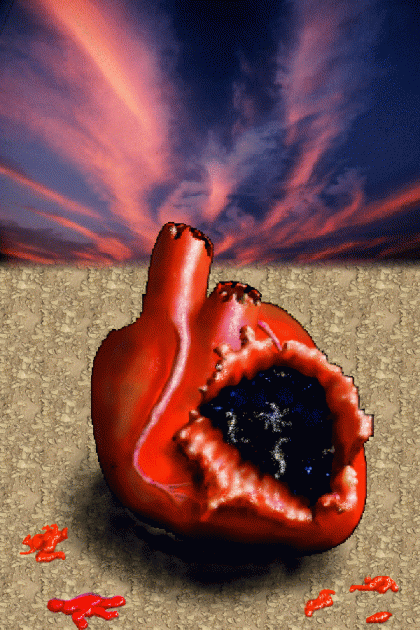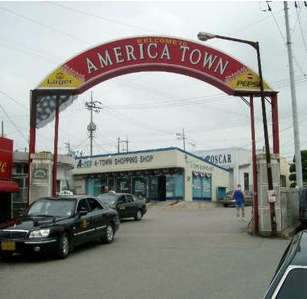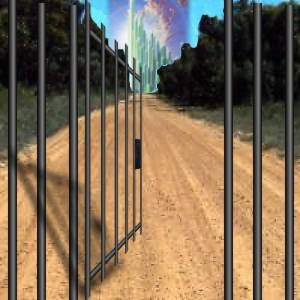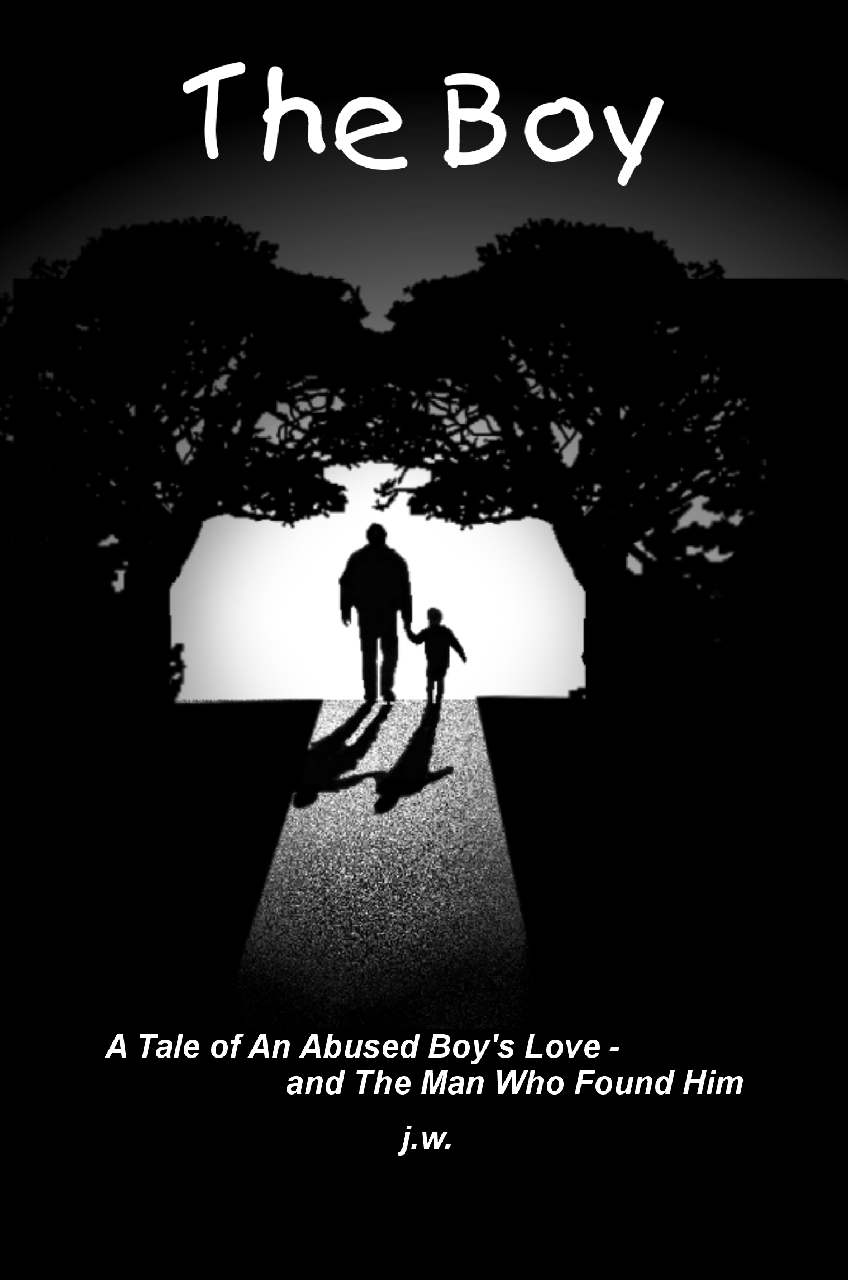Soon after we’d moved into the rental back in the ‘hood it became rather apparent that the old house – a slab floored stick-frame clapboard construction, which was quite weird, given the former and now deceased owner had been a mason. The toilets kept backing up, vomiting the contents of their bowels and ours across the loose linoleum floors like bad memories of meals once eaten.*
So my dad did what he does best: he called someone in.
And here they come in their big white truck with a tanker behind – and a long, long hose for sucking the sewage up . . .
They park it behind the house, and after poking around with some shovels (I could’ve told ’em where it was at) they found the septic tank.
Digging at it most carefully, they outline the profile; then bringing in a backhoe, they go at it awhile, their ancient machine puffing and chugging like a dinosaur or dragon with a sting tail – lifting buckets of dirt, dumping them aside . . .
And then, finishing the job with the shovels, the expose the concrete lid. It wasn’t as far down as I expected – but there were the workmen (or country bumpkins, from the look of it) – hooking big rusty chains with big rusty hooks to the rusty steel loops set in the concrete . . . then to the backhoe’s bucket . . .
The workmen stood back, and I, who had wisely placed himself in the bedroom, stood looking along with my tiresome brother – hoping the thin glass would offer some protection from the stench which would emerge as soon as they lifted the lid. I was quite sure my protection was futile, given the shallow aluminum framed windows and condition of the house.
Then the lid came up, looming and awesome as the backhoe’s engine gave a big chug and belched smoke, choking as they gave it the throttle . . .
And then there it stood! it all its awesome and hideous glory: the thing we had been waiting to see: the staring open eye of the pit . . . only instead of there being sewage on top . . .
there was a thick, pink, undulating skin. Ugly, mottled, smooth, it heaved like a living thing.
Immediately the workmen standing beyond the pit began chuckling, some of them chortling and slapping their knees and giving knowing looks at the house where my parents stood in embarrassed confusion, then comprehension . . .
And as I stood looking at that milky pinky white cloud floating in the museum of past bowel movements and desire, I realized what I was looking at:
The entire pool of the septic tank was covered in a thick floating layer . . . of condoms!
Huge it was. In more ways than one.
And the workmen apparently thought so, too. My brother began gagging as the stench oozed into the house despite the closed windows (the seals were no good) – and ran from the bedroom into the interior of the house . . .
while I stood alone, thinking.
Thinking about what HE did and our times together.
He never used a condom! I recall thinking. He always rode me ‘bareback’, down on the ground, face down in the grit . . .
But there they were: obvious evidence of the previous owners. Maybe after too many children and not enough family or dollars to support it, they’d gotten a clue about birth control. ‘Or,’ (the thought occurred) – this was from renters before we’d rented here, though after we’d left – after their father had died. I don’t know why I found it so disgusting or it bothered me so much. I still find it a bit disturbing so much later on; I can still feel that outrage and disgust in me.
But they were gone, and I was here.
As I stood looking – and looking up (I remember looking at the sky a lot – so refreshing, though it was more an overcast blue and gray.) Smelling that stench. Reflecting on my past and theirs while relishing somewhat my mid-Western and prudish parent’s embarrassment – yet knowing they weren’t the ones responsible, for we had just gotten there.
But those facts didn’t matter, because it didn’t change anything. My parents were still there and so was my brother (shudder). Nothing was different. That’s what we dealt with — each other. Outside lay other lives; ones we were imitating, but not quite perfect. We tried – and tried again.
But it was no use.
It was like I was something foreign here. Or had come to a foreign land. Again.
I saw my old best friend once. I was standing in the sand driveway of the home across the street when he came riding on a motorcycle. He stopped in front of me and we stared at each other. I had grown fat, wore glasses – not the kid he knew. Not a good match for his memories. And as for him – his curly hair was wild from the wind (he wasn’t wearing any helmet) and his eyes wilder. Like a feral cat.***
And I knew as soon as I saw him we’d have nothing in common, nothing to do together. We were no longer friends. I no longer knew him, nor he me. He gave me a long look, a few words, and took off . . .
I saw him again, thirty years later. He owns a shop. He’s poor and rash. And he has (or had) a young boy. One of several . . .
and he hangs with his brother, his bigger brother, the one who ‘did’ me (and his little sister when she was four – and he 14 or so).
That thought’s kinda scary . . . but kinda sad.
The End.
(’13’)
Host Notes: * Some part of me kept trying to connect the ‘vomiting toilets’ with the memories I kept having, only ‘I’ refused to do it (it made the sentences too long) – and it wasn’t the ‘memories’ which were bothering ‘me’ at the age of 13, it was the emotions connected with them – that along with the problems at school ** A matter-of-fact description of Jeff’s eyes in the when Matthew first see’s him in the book “The Boy” from when I saw him. Feral, like a wild cat.












